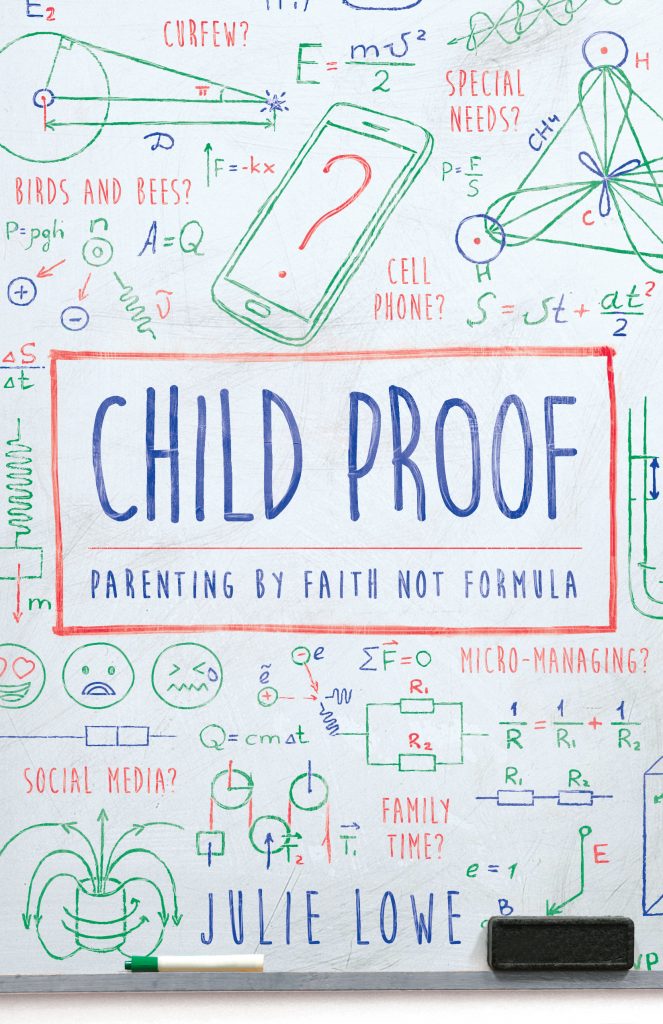When children are hurting, most parents would do anything to help bring relief. At times, this means that we might settle for solutions that provide short-term reprieves, but can cause secondary problems.
Take, for example, six-year-old Monica, who sincerely is afraid of the dark. Each night at bedtime, she begins her routine of checking under the bed and in the closet, turning on nightlights, and closing blinds. One night, she sees something disturbing on TV. Though you’ve gone through the nightly routine, she is still fearful. She looks panicked and is shedding tears, begging you to stay with her until she falls asleep. You’ve tried praying with her, playing soothing music, reading, a nightlight, and all the versions of comfort you can think of. It is getting late and you all are feeling sleep-deprived. Eventually you give in and allow Monica to settle into bed with you so that you all can get a decent night’s sleep. But what starts out as survival tool for a rough season slowly becomes the new normal. Monica likes the warmth and closeness of her parents and resists the idea of returning to her room.
For other children, the appealing short-term solution is to distract them by allowing them to watch TV until they fall asleep. It is a solution for a difficult moment that we all might allow, a decision made out of exasperation. But those temporary solutions tend to quickly become permanent habits. Kids become dependent on the TV to fall asleep, or on having a parent in the room, or on sleeping in the parents’ bed. It doesn’t start out that way, but it becomes a benefit or reward for being afraid: “I get to stay up late, watch TV, sleep with my parents, or (fill in the blank) because I am afraid.” Sometimes children might not want to get over their fears because it means losing something they have come to depend on or enjoy. What motivation is there to overcome fear if it means losing a special privilege?
If we are not thoughtful and careful on how we approach our children’s fears, we may unwittingly give them reasons to maintain them!
Pointing them to the one can protect from Every Fear
In whatever comfort I provide my children, I hope ultimately to point them to Christ, who can meet them in the midst of their fear. As a parent, my comfort is limited; I cannot protect them from every fear. My comfort is flawed and prone to disappoint; I will fail them and be frustrated, forgetful, or sinful in my responses. And my comfort is not always accessible; I cannot go to school with them, live inside their heads, or be available every time they struggle. However, I can point them to the One who is always there, always available, whose comfort is perfect and limitless.
The Spirit can go places inside a child’s heart and mind that we cannot. I am commissioned to image Christ in the comfort I provide my children, always leading them to Christ as their comfort. He can meet them in deeper and more meaningful ways than I as a parent can.
Second Corinthians 1:3–5 describes the comfort that we receive from Christ: “Who comforts us in all our affliction, so that we may be able to comfort those who are in any affliction, with the comfort with which we ourselves are comforted by God.” We have a source for all we need to be for our children. We can provide comfort because it has first been given to us. We can offer hope because our hope was first found in him. As parents, we live out before our children what Christ is and does for us.
God’s presence is always offered in the midst of fear. When we face tremendous fear and adversity, he offers us himself. We see this in Scripture over and over. Children need to find their hope and comfort there too. We don’t want to guarantee that bad things won’t happen, offer false hope, or make promises we can’t possibly fulfill. Young people often see through this anyway, knowing that their parents can’t promise that bad things won’t happen. We want to point them to the One who can meet them in the midst of their struggles and fears. Some kids need short-term help (greater access to a parent, accommodation on the bus or in school, contact with a guidance counselor); some benefit from counseling or other, more intensive intervention. They all need to know that there is a God who walks with them through their fears. Parental wisdom is knowing—through prayer, thoughtful reflection, and wise counsel—what type of intervention their children need, while wisely and consistently pointing them to greater faith.
Thirteen Ways You Can Give Kids Comfort
1. You are not alone.
“Even though I walk through the valley of the shadow of death, I will fear no evil, for you are with me; your rod and your staff, they comfort me.” (Psalm 23:4 ESV)
2. You have value.
“But you are a chosen race, a royal priesthood, a holy nation, a people for his own possession, that you may proclaim the excellencies of him who called you out of darkness into his marvelous light.” (1 Peter 2:9)
“So don’t be afraid; you are worth more than many sparrows.” (Matthew 10:31 NIV)
3. God sees your tears.
“He will wipe away every tear from their eyes, and death shall be no more, neither shall there be mourning, nor crying, nor pain anymore, for the former things have passed away.” (Revelation 21:4)
4. There is help.
“God is our refuge and strength, a very present help in trouble.” (Psalm 46:1)
“For we do not have a high priest who is unable to sympathize with our weaknesses, but one who in every respect has been tempted as we are, yet without sin. Let us then with confidence draw near to the throne of grace, that we may receive mercy and find grace to help in time of need.” (Hebrews 4:15–16)
5. Your life has purpose.
“For I know the plans I have for you, declares the Lord, plans for welfare and not for evil, to give you a future and a hope.” (Jeremiah 29:11)
6. What you are going through is temporary.
“So we do not lose heart. Though our outer self is wasting away, our inner self is being renewed day by day. For this light momentary affliction is preparing for us an eternal weight of glory beyond all comparison, as we look not to the things that are seen but to the things that are unseen. For the things that are seen are transient, but the things that are unseen are eternal.” (2 Corinthians 4:16–18)
7. There is a way out.
“No temptation has overtaken you that is not common to man. God is faithful, and he will not let you be tempted beyond your ability, but with the temptation he will also provide the way of escape, that you may be able to endure it.” (1 Corinthians 10:13)
8. You are more than your outward appearance.
“The Lord sees not as man sees: man looks on the outward appearance, but the Lord looks on the heart.” (1 Samuel 16:7)
9. You cannot imagine what good lies in store for you.
“No eye has seen, nor ear heard, nor the heart of man imagined, what God has prepared for those who love him.” (1 Corinthians 2:9)
10. You will not always feel this way.
“We are afflicted in every way, but not crushed; perplexed, but not driven to despair; persecuted, but not forsaken; struck down, but not destroyed.” (2 Corinthians 4:8–9)
“For his anger is but for a moment, and his favor is for a lifetime; Weeping may tarry for the night, but joy comes with the morning.” (Psalm 30:5)
11. You are greatly loved.
“I have loved you with an everlasting love; therefore I have continued my faithfulness to you.” (Jeremiah 31:3)
“. . . to comprehend . . . what is the breadth and length and height and depth, and to know the love of Christ.” (Ephesians 3:18)
12. You will not be put to shame.
“Fear not, for you will not be ashamed; be not confounded, for you will not be disgraced; for you will forget the shame of your youth, and the reproach of your widowhood you will remember no more.” (Isaiah 54:4)
“Keep your life free from the love of money, and be content with what you have, for he has said, ‘I will never leave you nor forsake you.’ So we can confidently say: ‘The Lord is my helper; I will not fear; what can man do to me?’” (Hebrews 13:5–6)
13. God is up to good in your life.
“You meant evil against me, but God meant it for good, to bring it about that many people should be kept alive as they are today.” (Genesis 50:20)
“And we know that for those who love God all things work together for good, for those who are called according to his purpose.” (Romans 8:28)
Adapted from Child Proof: Parenting by Faith Not Formula © 2018 by Julie Lowe. Used by permission of New Growth Press. Excerpt may not be reproduced without the express written permission of New Growth Press. To purchase this and other resources, please visit www.newgrowthpress.com.






